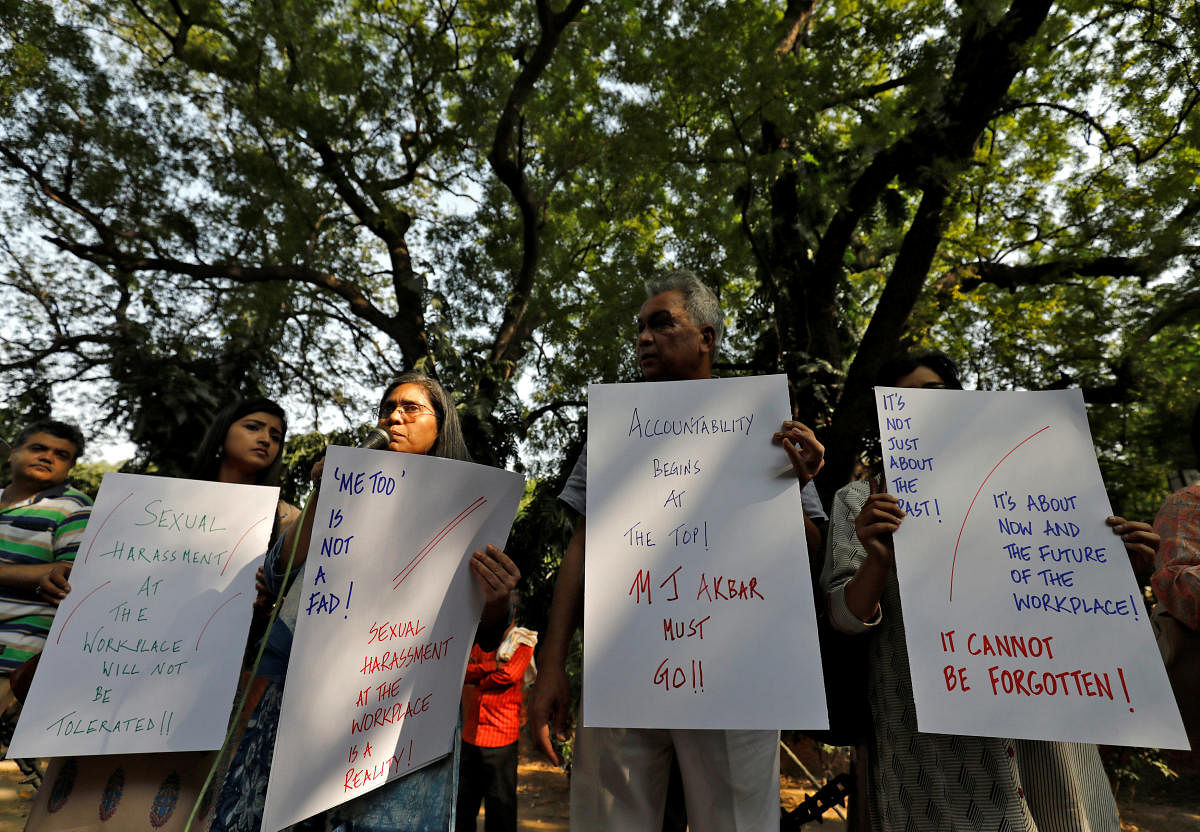
The journalists in New Delhi on Saturday joined the clamour for the removal of #MeToo stung Minister of State for External Affairs, M J Akbar, from the Union Council of Ministers.
A day before Akbar is set to return to New Delhi after a visit to Nigeria and Equatorial Guinea, a group of journalists took to the streets in the national capital and raised slogans demanding a removal of the Minister of State for External Affairs, who has been accused of sexually harassing several media persons.
Prime Minister Narendra Modi and the leadership of the ruling BJP will take a call on the fate of the 67-year-old journalist-turned-politician after his return to New Delhi.
The protesting journalists held placards saying that sexual harassment at the workplace was not acceptable. They expressed solidarity with at least eight women journalists, who this week came out on social media to accuse Akbar of inappropriately behaving with them or sexually harassing them when he was leading the media organizations they either wanted to work for or worked for.
“Sexual harassment at the workplace is non-negotiable. We salute those women who have come out and shared their trauma. It is not easy to speak out and takes a lot of courage to speak up about such incidents,” senior journalist and president of Indian Women Press Corps, T K Rajalakshmi, said.
The IWPC members were joined by other journalists working for newspapers and TV channels to seek removal of Akbar from the Union Council of Ministers. They demanded effective implementation of the Sexual Harassment of Women at Workplace (Prevention, Prohibition and Redressal) Act.
Akbar, who is now a BJP member of the Rajya Sabha from Jharkhand, had a long career in media before he started dabbling in politics. He was founding editor of a magazine and two newspapers. He later worked as the editorial director of another magazine and a TV channel. He also worked as editor of two other newspapers. He joined the Congress in 1989 and got elected to the Lok Sabha from Kishanganj in Bihar. He returned to media in 1993. He joined the BJP in March 2014. He is now a BJP member of the Rajya Sabha.
As the #MeToo campaign gained momentum and brought to light countless cases of sexual harassment in workplaces, particularly in media and film industry, over 120 individuals and feminist groups on Saturday came out with a statement to express solidarity with the people who came out on social media to share their experiences. “The power of this moment lies not just in the individual narratives that are being shared but in the public discourse that is being created. An open challenge to the pervasiveness of a culture that allows men to harass women, intimidate and exploit them, with impunity,” they said.
“For every woman who has spoken out about such violence, there are likely tens of thousands of others, especially in the unorganised sector and semi-formal workspaces, who are yet to find an avenue to speak out. And despite the rhetoric of Beti Bachao, we still live in a world where just a few days ago, 34 minor girls were beaten up by a mob when they opposed sexual advances of the men from a nearby village in Supaul district, Bihar,” they added.
